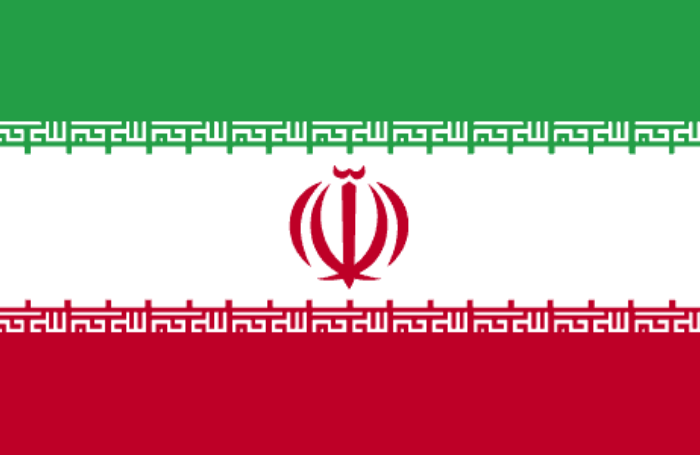Blackout Hits Iran Nuclear Site in What Appears to Be Israeli Sabotage: Ronen Bergman, Rick Gladstone and Farnaz Fassihi, NYTimes, Apr. 12, 2021
A power failure that appeared to have been caused by a deliberately planned explosion struck Iran’s Natanz uranium enrichment site on Sunday, in what Iranian officials called an act of sabotage that they suggested had been carried out by Israel.
The blackout injected new uncertainty into diplomatic efforts that began last week to salvage the 2015 nuclear deal repudiated by the Trump administration.
Iran did not say precisely what had caused the blackout at the heavily fortified site, which has been a target of previous sabotage, and Israel publicly declined to confirm or deny any responsibility. But American and Israeli intelligence officials said there had been an Israeli role.
Two intelligence officials briefed on the damage said it had been caused by a large explosion that completely destroyed the independent — and heavily protected — internal power system that supplies the underground centrifuges that enrich uranium.
What Is Going On In Iran? Cyber Experts Weigh In: Akiva Spiegelman, Arutz Sheva, Apr. 11, 2021
Since this morning, the media has also gone on a frenzy in an attempt to provide its various viewers a complete a picture as possible regarding the power outage in Iran’s Natanz nuclear plant. Arutz Sheva has gathered a number of cyber experts to discuss the situation and its potential aftermath.
Eric Barbing, former head of the Shin Bet cyber division: ‘The case in Natanz connects to things that are happening in the region right now, and assuming that this is not an administrative incident, it seems at the moment that it is only a message and damage to consciousness. Iran has gone through a difficult year as a country with a strategy of silencing events that harm government or government services. In the present case it is a relatively rare coincidence, probably in one of their strategic places in which the infrastructure is expected to show exceptional strength. When there is such a power outage, even if it is not related to the operational axis and is related to the Iranian nuclear project, we are left with a number of questions. As stated, no abnormal activity has been recorded at the moment, but this is a message. Various cyber tools may be used here.
Berbing then added: ‘The person who caused the power outage performs a gentle message transmission. It does not seem coincidental. The very media preoccupation with the subject causes the inter-arena struggle to be used as a deterrent. In cyber bodies will never take responsibility. This is a cold war and yet not such a cold one. If any player, including Israel, wanted them to know they were responsible for the action, they would make their intention clear. This is currently not the case. The damage at the moment, as stated, is on a conscious level alone’.
______________________________________________________
Israel Fears Iran Could Become Next North Korea
Ron Ben Yishai
Ynet News, Apr. 11, 2021
The mysterious electrical malfunction at the Natanz uranium enrichment facility in Iran early Sunday rekindled the world media’s interest in the struggle between Iran as it tries to obtain nuclear capability and Israel as it attempts to stall it for as long as possible.
It is still unclear whether Israel truly is involved in the “very suspicious” incident at Natanz, as one Iranian official put it.
It is also unclear how severe the damage is to the facility, but it has certainly delayed the use of the new centrifuges unveiled just days ago – and older centrifuges used for enriching uranium were also impacted.
The International Atomic Energy Agency, the United Nations nuclear watchdog, will likely be able to shed more light on the situation.
Iran decided to announce the incident for two reasons. Firstly, UN inspectors and their monitoring cameras were still active at Natanz and would have been able to detect the malfunction.
Secondly, the Iranians, who have observed an increase in the Israeli propensity to brag about covert operations, hoping to use any Israeli reaction to gauge whether Jerusalem indeed had a hand in it.
Analysis: Attack On Iran Ship Off Yemen Escalates Shadow War: John Gambrell, AP, Apr. 8, 2021
An attack this week on an Iranian cargo ship that is said to serve as a floating base for Iran’s paramilitary Revolutionary Guard forces off the coast of Yemen has escalated a yearslong shadow war in Mideast waters. The
An attack this week on an Iranian cargo ship that is said to serve as a floating base for Iran’s paramilitary development comes just as world powers are negotiating over Tehran’s tattered nuclear deal.
The assault on the MV Saviz on Tuesday appears to have caused the most-extensive damage yet in this shadow war, seemingly between Iran and Israel — and one that could further escalate regional tensions. Attacks and counterattacks between the two nations could spin out of control.
Since at least 2019, there have been a series of mysterious attacks on vessels, typically with limpet mines attached by a special forces diver to a ship’s hull. The attacks came at a time of mounting tensions between Iran and the United States over then-President Donald Trump’s decision to unilaterally pull out of the atomic accord.
The U.S. Navy blamed a series of blasts in June 2019 in the Gulf of Oman off the coast of the United Arab Emirates on Iran. Video after one blast showed Revolutionary Guard troops removing an unexploded limpet mine from one targeted ship, something never fully explained by Tehran.
______________________________________________________
For Further Reference:
‘Mossad Behind Cyberattack On Iran’s Natanz Nuclear Facility’: Yonah Jeremy Bob, Lahav Harkov, Tzvi Joffre, Jerusalem Post, Apr. 12, 2021
Should Israel brace for Iranian Retaliation?: Yoav Limor, Israel Hayom, Apr. 12, 2021
The Real Iran Deal Needs To Include All The Relevant Actors: Victoria Coates, Len Khodorkovsky, Jerusalem Post, Apr. 12, 2021


